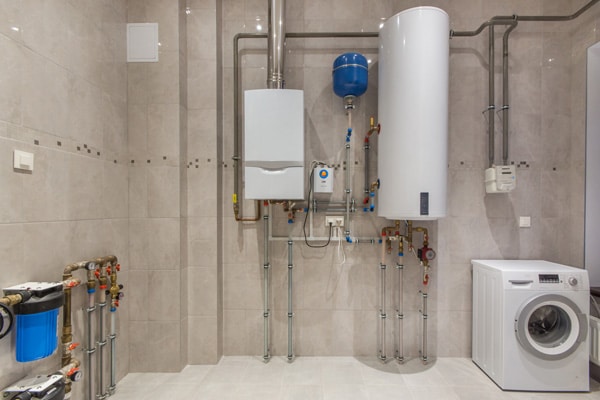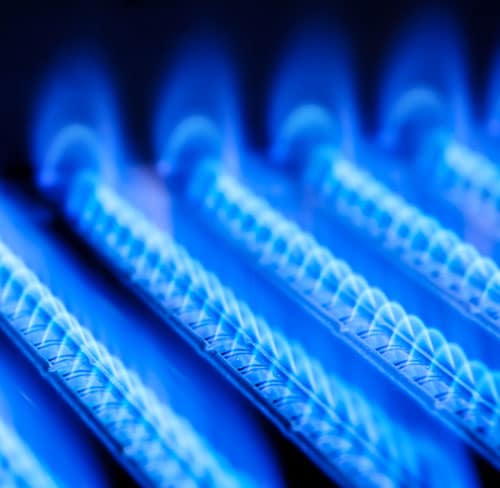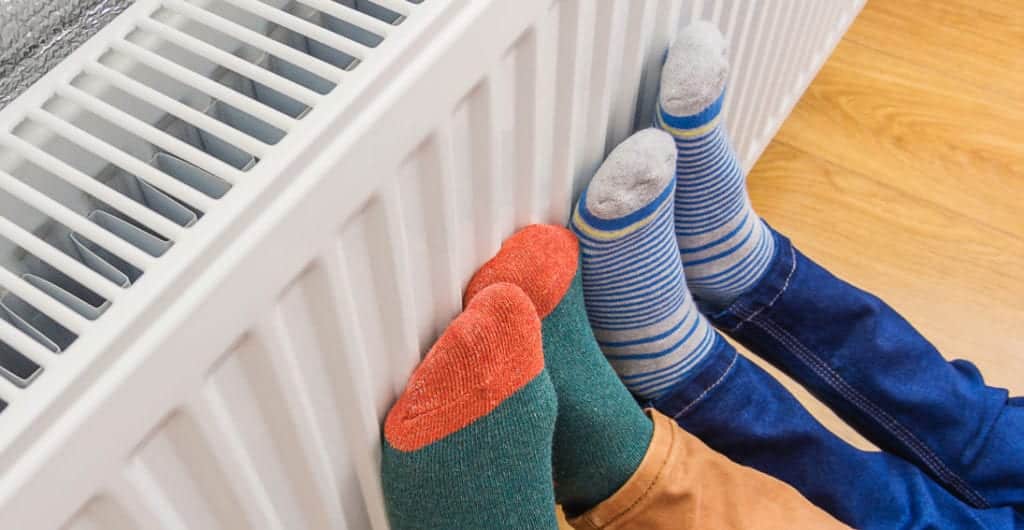In our cold climate, every home needs a heat source to stay warm in winter. Many people use furnaces to keep their homes nice and toasty, but boilers are another type of heating system that have numerous benefits like energy efficiency, less maintenance, better indoor air quality, and consistent heat distribution.
Whether you’re building a new home or upgrading your heating system, keep reading to learn about boilers and why they may be a good option to keep your home cozy all winter long.


Like furnaces, boilers are central heating systems that distribute warmth throughout our homes. However, instead of forced heated air, boilers generate hot water or steam that flows through pipes to radiators or baseboards around the household. The energy emitted from the radiators keeps occupants warm.
Boilers have been heating homes for centuries, but didn’t become standard central heating systems until the early 20th century. Over the years, boilers have evolved to be more compact and energy efficient.
The way boilers distribute heat has also changed. Older homes typically have steam radiators, while modern homes have hot water radiators or hydronic radiant floor heating. Gas, oil, and electricity are standard fuels for residential boilers that differ in price, efficiency, and availability, with natural gas as the most common heating fuel in the United States.
All boilers have an annual fuel utilization efficiency (AFUE) score that corresponds to the percentage of fuel that is successfully converted to heat. For example, if a boiler has an AFUE score of 90, that means 90% of its fuel is used for heating and the other 10% escapes through the chimney or other openings. AFUE scores range from 50-90%, although new boiler models can score up to 98.5.


Energy Savings
Boilers may cost more to install than furnaces, but they save homeowners money over time because they use fuel more efficiently than other central heating systems and last up to 30 years with proper maintenance. As with any heating system, homeowners can boost boiler efficiency even further by using a programmable thermostat, insulating their walls, weather-stripping doors and windows, and opening curtains to let the sunshine in during the day.
Less Maintenance
Although boilers need to be inspected by certified HVAC technicians at least once a year to ensure they’re working properly, they do not have filters that need to be replaced every few months. They also have little to no moving mechanical parts, which are more susceptible to damage.
Better Air Quality
Boilers have no effect on the indoor air quality of your home because they do not use air to distribute heat. This can greatly reduce the circulation of dust, pet dander, bacteria, viruses, and other indoor air pollution around your home.
Even Heat Distribution
Because boiler systems are always circulating, they provide consistent heat that keeps you and your family comfortable during cold months. In the summertime, you’ll need a separate air conditioner to cool your home since boilers only generate heat.

No matter the type of heating system in your home or the brand of the equipment, Bears Home Solutions is here to ensure you and your family stay comfortable all year long. Contact us to set up a consultation or request a maintenance appointment today!



